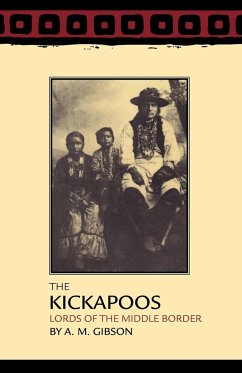
Taking Indian Lands
The Cherokee (Jerome) Commission, 1889-1893
Versandkostenfrei!
Versandfertig in 1-2 Wochen
25,99 €
inkl. MwSt.

PAYBACK Punkte
13 °P sammeln!
Authorized by Congress in 1889, the Cherokee Commission was formed to negotiate the purchase of huge areas of land from the Cherokees, Ioways, Pawnees, Poncas, Tonakawas, Wichitas, Cheyennes, Arapahos, Sac and Fox, and other tribes in Indian Territory. Some humanitarian reformers argued that dissolving tribal holdings into individual private properties would help "civilize" the Indians and speed their assimilation into American culture. Whatever the hoped-for effects, the coerced sales opened to white settlement the vast "unused" expanses of land that had been held communally by the tribes. In...
Authorized by Congress in 1889, the Cherokee Commission was formed to negotiate the purchase of huge areas of land from the Cherokees, Ioways, Pawnees, Poncas, Tonakawas, Wichitas, Cheyennes, Arapahos, Sac and Fox, and other tribes in Indian Territory. Some humanitarian reformers argued that dissolving tribal holdings into individual private properties would help "civilize" the Indians and speed their assimilation into American culture. Whatever the hoped-for effects, the coerced sales opened to white settlement the vast "unused" expanses of land that had been held communally by the tribes. In Taking Indian Lands, William T. Hagan presents a detailed and disturbing account of the deliberations between the Cherokee Commission and the tribes. Often called the Jerome Commission after its leading negotiator, David H. Jerome, the commission intimidated Indians into first accepting allotment in severalty and then selling to the United States, at it price, the fifteen million acres declared surplus after allotment. This land then went to white settlers, making possible the state of Oklahoma at the expense of the Indian tribes who had held claim to it. Hagan has mined nearly two thousand pages of commission journals in the National Archives to reveal the commissioners' dramatic rhetoric and strategies and the Indian responses. He also records the words of tribal leaders as they poignantly defended their attachment to the land and expressed their fears of how their lives would be changed. William T. Hagan is retired Professor of History at the University of Oklahoma. His numerous books on American Indian subjects include The Sac and Fox Indians; United States-Comanche Relations; Quanah Parker, Comanche Chief; and Theodore Roosevelt and Six Friends of the Indian, all published by the University of Oklahoma Press.














